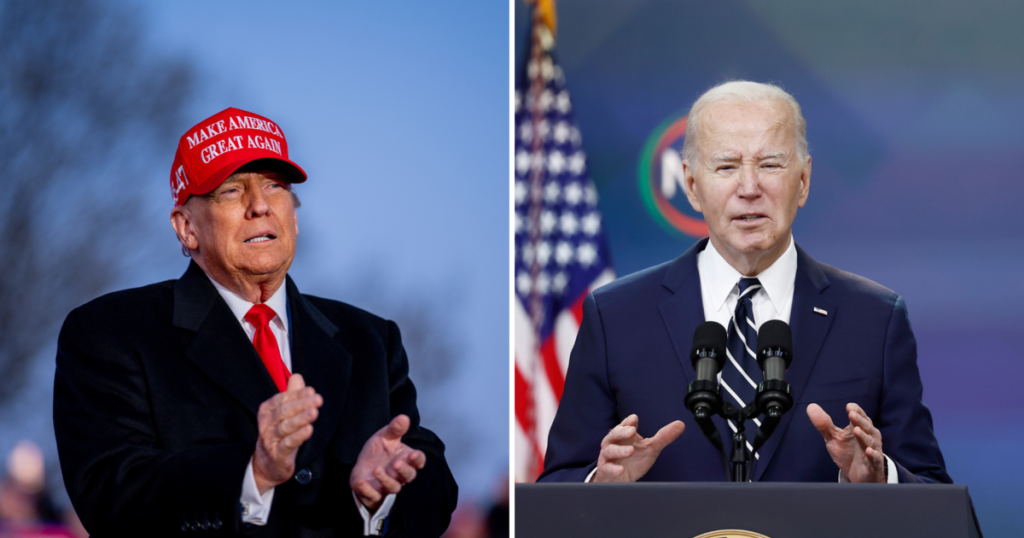A recent survey conducted by CBS News/YouGov found that a significant portion of the nation’s voters do not believe that President Biden or former President Trump has the mental and cognitive health necessary to serve as president. Partisanship plays a role in these perceptions, leading to a tough tradeoff for some voters, with many independents voting for a candidate they do not believe has the cognitive ability to serve. While Trump fares slightly better than Biden in terms of perception of cognitive ability, neither candidate is viewed with wide confidence. About half of voters believe Trump has the cognitive ability to serve, while only a third think the same of Biden. These views have remained relatively unchanged in recent months.
Partisanship influences these views, with Democrats being more skeptical about Biden’s cognitive health compared to Republicans’ views on Trump. However, even Democrats who doubt Biden’s capacity to serve are still voting for him over Trump. Conversely, Republicans are even more skeptical about Biden, contributing to his lower overall numbers. Independents are more likely to view Trump as having the mental and cognitive health to serve as president compared to Biden. Most independents who doubt Biden’s cognitive health are backing Trump, while those who doubt Trump’s cognitive health are supporting Biden.
The survey was conducted with a nationally representative sample of 2,063 U.S. adult residents and included an oversample in key battleground states. The data was weighted by gender, age, race, and education based on the U.S. Census American Community Survey and Current Population Survey, as well as past vote. The margin of error for the survey is ±3.2 points among all adults and ±3.8 points among registered voters. Overall, the survey findings highlight the differing perceptions among voters regarding the cognitive abilities of President Biden and former President Trump, with partisanship playing a significant role in shaping these views and influencing voter behavior.
In conclusion, a substantial portion of voters in the United States question the mental and cognitive health of both President Biden and former President Trump. Partisanship influences these perceptions, with Democrats more skeptical about Biden’s cognitive abilities and Republicans more skeptical about Trump’s. Despite these doubts, many voters are still choosing to support their preferred candidate, even if they do not believe they have the cognitive ability to serve as president. Independents are also divided in their views, with more trusting Trump’s mental and cognitive health compared to Biden’s. The survey results shed light on the complex dynamics at play in the current political landscape and the challenges facing voters as they navigate their choices in the upcoming elections.


